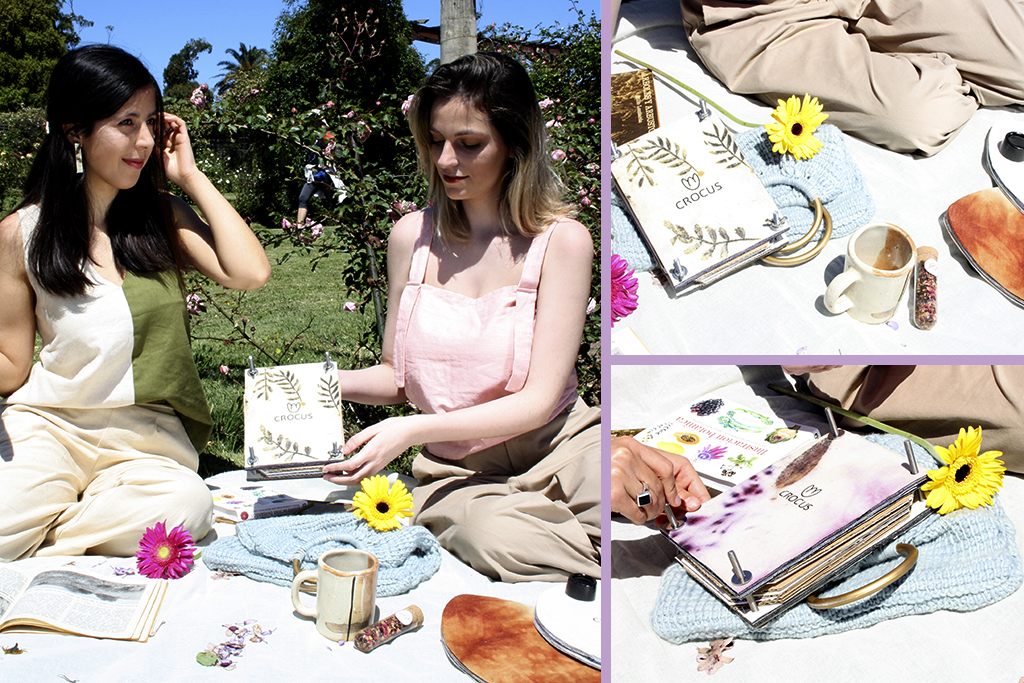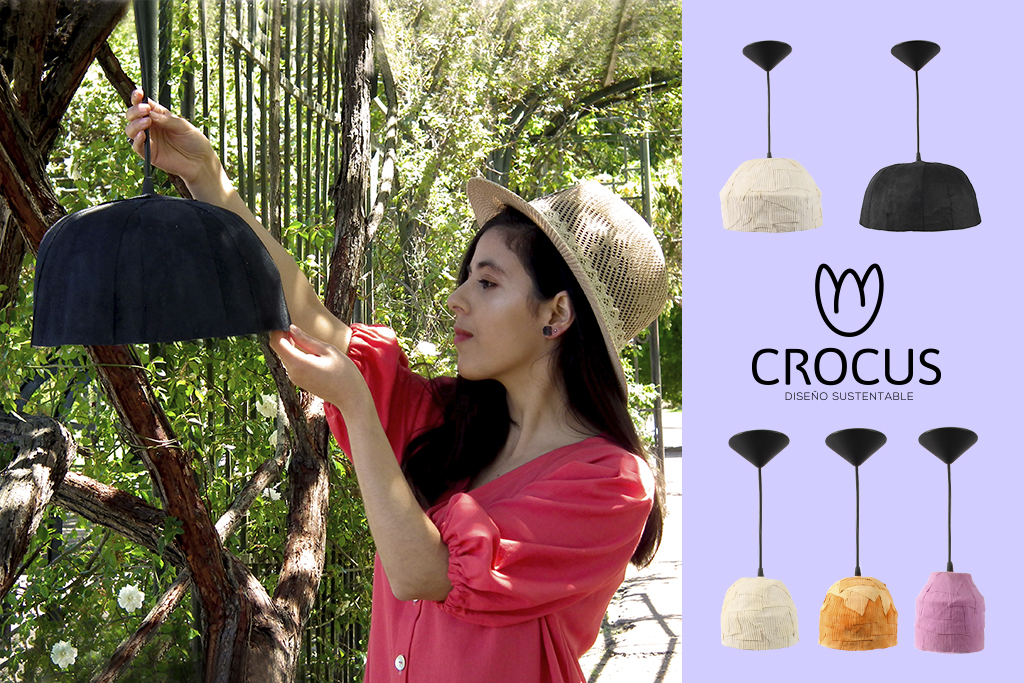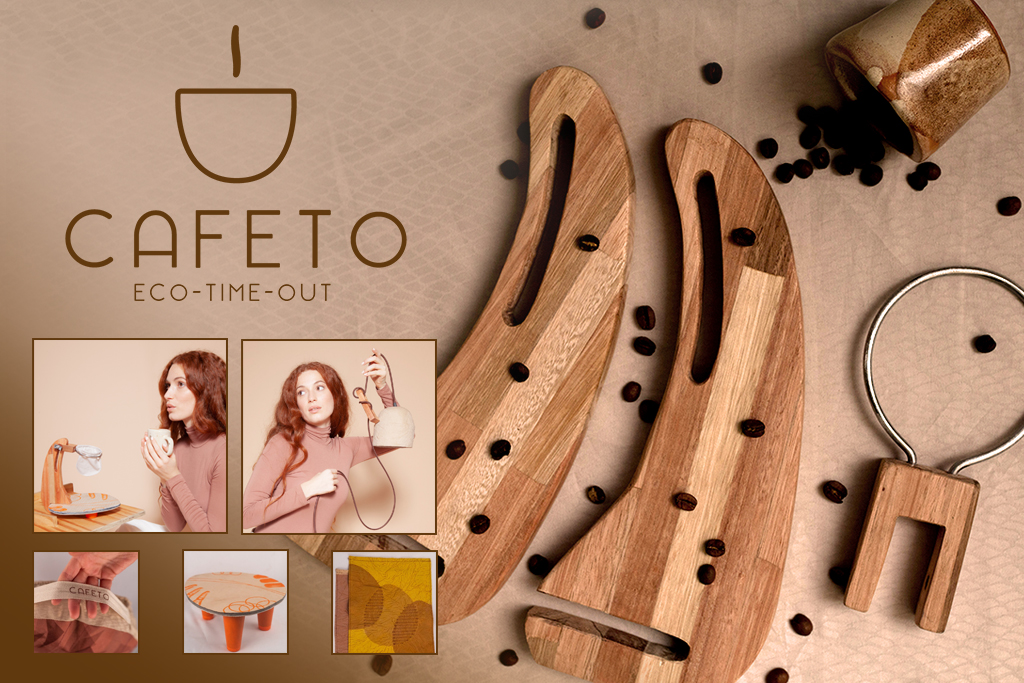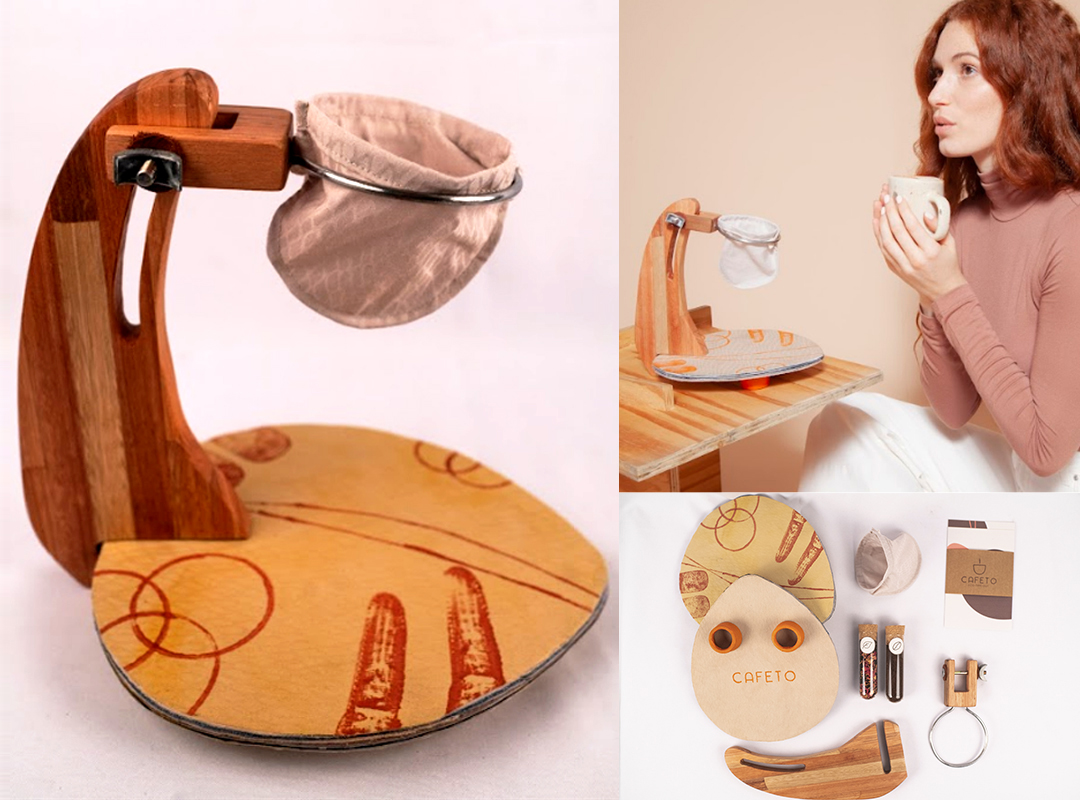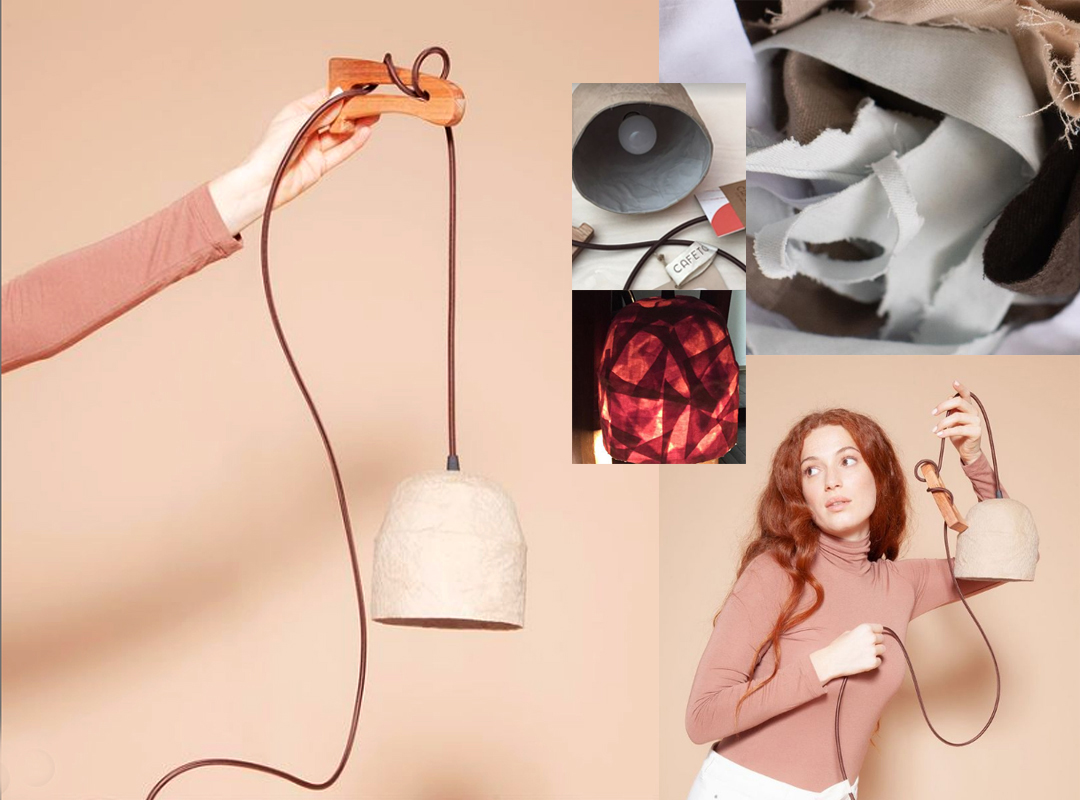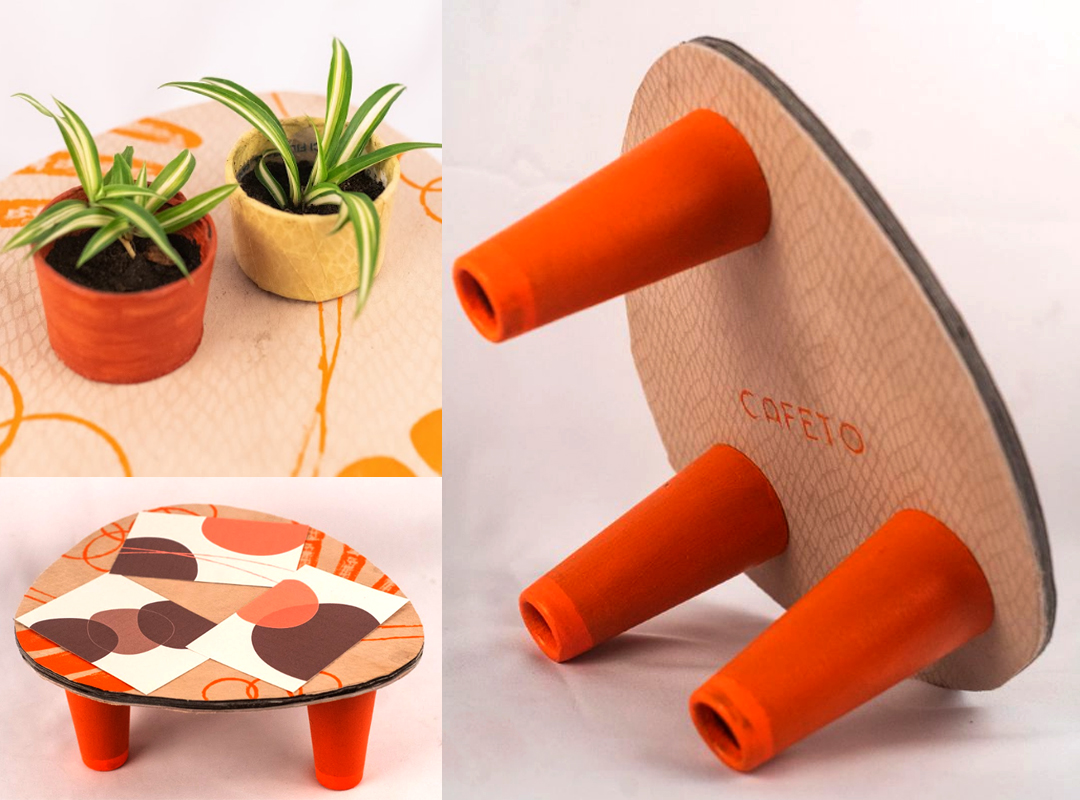Crocus - CAFETO - eco - time - out
Basic information
Project Title
Full project title
Category
Project Description
We investigate to change the characteristics of the textile, making it rigid.
Ecological resin was discovered, which in addition to hardening textiles, glues and waterproofs them, making it possible to build structures with different shapes.
At Crocus we obtain textile discards from factories and second hand clothes; with that we create textile plates or products with molds.
Geographical Scope
Project Region
Urban or rural issues
Physical or other transformations
EU Programme or fund
Which funds
Description of the project
Summary
We investigate to change the characteristics of the textile, making it rigid.
Ecological resin was discovered, which in addition to hardening textiles, glues and waterproofs them, making it possible to build structures with different shapes.
At Crocus we obtain textile discards from factories and second hand clothes; with that we create textile plates or products with molds.
In the first instance we created the Cafeto experience collection. we start on the journey of generating an experience, that allows user to take a time out in a small space of their homes. the experience of being able to prepare and have a tea or coffee in a manual device, sitting in a corner of 1 meter x 1 meter, designed to provide the calm and relaxation that is needed.
Productos:
La Cafeté - Manual coffee maker designed and made from waste, with two levels to make both tea and coffee.
Liberia - Wall light designed from textile waste, with its light effect, provides an atmosphere of calm and relaxation.
Robusta - Cushion designed and made with textile waste, to rest at time out. Includes grip for easy portability.
Arábica - Support surface designed with textile waste, with ergonomic height to place small objects such as notebooks, cell phones, cups.
Camellia - Decorative textile sheets designed to provide a calm environment and accompany a visual order.
And then the spring collection we created a collection that brings you closer to nature and beauty.
A selection of unique lamps based on the concept of flowers and with the textile plates we made flower presses, notebook holders and earrings to accompany the photo shoot.
Our philosophy is to give a second life to on wasted materials, to tell and teach people that every seed counts to achieve a circular, ecological and sustainable economy.
Key objectives for sustainability
Our strategy begins with finding more raw materials, so generating alliances with factories and textile workshops that work with natural fibers is one of our objectives.
We have premises where we can exhibit our products in exchange for a % of sales and alliances with other entities with which we can promote their products along with ours (for example people who work with coffee, natural dyes, artists to generate prints, etc.).
This promotes the generation of a local circular commerce, helping, collaborating and promoting the work of the participants.
The process that we manage to carry out is:
1- We obtain textile waste material.
2- We add value and a new life to it through research and design.
3- We provide a solution to the problem we have set ourselves.
4- We generate alliances and promote local commerce.
5- We raise awareness of the issues, upcycling, sustainability, ecology, etc.
Key objectives for aesthetics and quality
Our work processes are always design processes with methodologies such as design thinking, Bruno Munari, human-centered design, etc; taking a problem to solve and a theme to generate an aesthetic in accordance with the project.
Everything is researched, morphology, colours, sizes and functionality;
trying not to generate more waste in the manufacturing process and thinking about how the product will be discarded after its useful life.
Key objectives for inclusion
Thanks to one of the pillars of our project, which are the social networks (INSTAGRAM), to raise awareness about textile pollution, sustainability and circular economy also providing information on the production processes of our products: design, natural dyes, etc.
We also created the TIME OUT playlist on SPOTIFY with the aim of covering all the senses.
In this way we achieve a constant interaction with our community by generating surveys, opinions and questions.
In this way we exchange opinions, knowledge, contacts not only with the commercial participants, but also with those who are part of the virtual and local community who learn and share their experiences with us, creating a human group with opportunities and accessible to anyone who wants to be part of it.
Results in relation to category
So far we have 599 followers, and we have presented ourselves to be part of an event in Chile where we have received 111 votes from the public, we have had several collaborations and exchanged knowledge with entrepreneurs.
Due to the lack of exclusive time for the project, it has not had a wider scale, so we can confirm that it has had a good acceptance in terms of followers, interaction, sales and work time.
The material achieved surprises people, as the textile plates get an appearance not seen before, similar to MDF/wooden plate. With a variety of features such as being waterproof, structural when transformed into a plate or with organic shapes when using moulds.
How Citizens benefit
It is time to change, to teach global societies that taking care of the planet is important.
Our project does not only make sustainable objects, but also aims to provide quality information so that the people of the world become aware.
To achieve this, our project is in constant exchange of opinions and research, surveys and / or co-design with entrepreneurs, which helps us to expand not only with the exchange of knowledge, but also with an audience that we would not reach only from our channel.
Physical or other transformations
Innovative character
After the research in the search to generate textile structures in a sustainable way, without polluting more than what the textile industry already pollutes, generating this material with waste textiles and thus giving a new life to this material and an added value to the new products that can be made with this material.
The innovation is the material achieved. The products we make are just a way of demonstrating how this material can be used and in what way, leaving open a whole path of possibilities that we have not yet covered.
Learning transferred to other parties
For the realisation of our products, after research, alliances to obtain raw materials, we only need working space, time and manpower.
The working tools are available on the market, and the wood cuts can be made either by CNC or manually.
Sales can be made online through social networks and be on display in premises that support sustainability.
If we think about the future, we can replicate it in other countries (South America), or from Spain, we could sell the products to the whole of Europe through the Spain's national post office.
The Crocus team has the experience, wisdom and maturity to achieve this.

